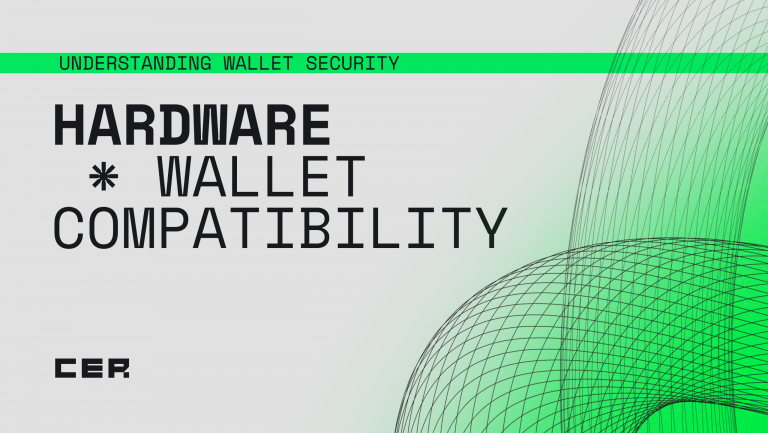Understanding wallet security: Hardware Wallet Compatibility

In the world of cryptocurrencies, ensuring the security of your digital assets is of paramount importance. With the increasing number of cyber threats, it is crucial to adopt robust security measures to safeguard your crypto holdings. One such crucial aspect is hardware wallet compatibility, which plays a vital role in enhancing wallet security.
According to our Wallet Security Rating, 55,26% of the investigated software wallet have hardware wallet compatibility. Let’s delve into what it is, why it is important, and how it influences the overall security of your crypto wallet.
What is hardware wallet compatibility?
Hardware wallet compatibility refers to the ability of a cryptocurrency wallet to integrate and interact seamlessly with hardware wallets, often referred to as cold wallets or hardware security modules (HSMs). These hardware devices are specifically designed to provide an extra layer of security by keeping your private keys offline and protected from potential online threats.
Why is hardware wallet compatibility important?
- Enhanced security: hardware wallet offer a secure offline environment for storing private keys, minimizing the risk of unauthorized access and potential hacking attempts. By ensuring compatibility with hardware wallet, a crypto wallet reinforces its security infrastructure, making it significantly more challenging for attackers to compromise your funds.
- Protection against keyloggers and malware: Traditional software wallets are susceptible to keyloggers and malware that can record keystrokes and gain unauthorized access to sensitive information. With hardware wallet compatibility, the private keys are stored securely within the hardware device, preventing them from being exposed to potentially compromised software environments.
- Offline transaction signing: Hardware wallet enable users to securely sign transactions offline. The private keys never leave the hardware device, ensuring that even if your computer or smartphone is compromised, your funds remain protected. This offline transaction signing process adds another layer of security to your wallet activities.
How hardware wallet compatibility influences wallet security
- Private key protection: Hardware wallet ensure that your private keys are stored securely within the hardware device and are never exposed to potential online threats. This isolation significantly reduces the risk of private key theft and unauthorized access.
- Mitigation of online vulnerabilities: By leveraging hardware wallet, users can eliminate the vulnerabilities associated with software wallets. The integration of hardware wallet compatibility minimizes the risk of malware attacks, phishing attempts, and other cyber threats that are prevalent in online environments.
- Secure transaction verification: Hardware wallet provide a trusted environment for verifying and signing transactions. This process ensures that only authorized transactions are executed, reducing the likelihood of fraudulent activities.
By integrating with hardware wallets, a cryptocurrency wallet can reinforce its security infrastructure and provide users with enhanced protection against cyber threats. Hardware wallet compatibility not only protects private keys from potential online vulnerabilities, but also ensures secure transaction verification and ease of use. As a crypto investor, it is imperative to prioritize wallet security and consider hardware wallet compatibility as a fundamental requirement when choosing a reliable and secure crypto wallet for safeguarding your digital assets.
Make sure to check if your crypto storage has hardware wallet compatibility in our Wallet Security Rating


